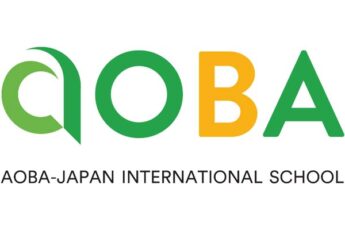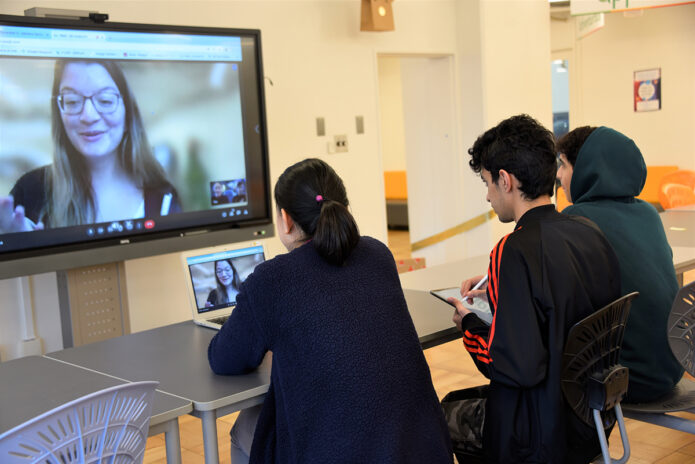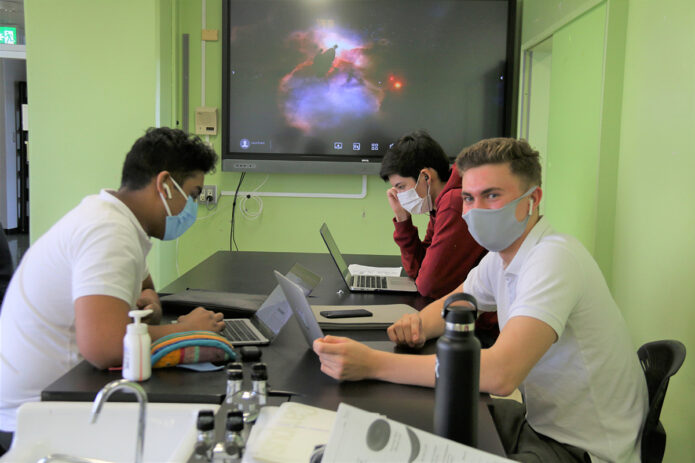
No two students are alike, and many are bringing unique talents to their schooling that might not flourish in a traditional educational setting. At its core,
this is something that Aoba-Japan International School understands deeply, and it has inspired their most recent educational offering. The online version of Aoba’s Global Leadership Diploma (GLD) programme will be available from this April, allowing diverse learners to make the most of their individual abilities, wherever they might be.
The GLD itself is a two-year programme that has been offered at Aoba since 2018, and it has already made a difference for dozens of students who have
gone through it. Students who enter the programme work directly with a Leadership Coach, a teacher who is assigned to them and who helps the student identify their skills and passions. They also help the student design their own curriculum. One of the things that makes the GLD stand out is how it allows students to pursue what they’re most interested in, while still satisfying rigorous academic requirements. The learning pathway that students develop alongside their Leadership Coaches are vetted and reviewed regularly by the school’s GLD programme Coordinator, the Information and Communications Technology team, and Admissions. Many GLD students also take part in internships at businesses that are part of Aoba’s extensive network.

Unique approach
Phillip Smiler, who leads the GLD programme at Aoba, shared the story of one of its recent graduates. She was a student who had a keen interest in art and fashion, as well as a combination of SNS savvy and social conscience. Earlier in her time at Aoba, she managed to raise ¥3 million to support orphanages around Tokyo through her own efforts on social media. When it came time to choose between the two diploma programmes at Aoba—the International Baccalaureate Diploma Programme and the GLD—she realised she wanted the freedom that the GLD offered. After a successful course of study at Aoba, she went on to a fashion design school in Vancouver; the application process demanded a six-hour interview, which she passed with flying colours.
Smiler said this was a perfect example of what the GLD is all about: “The GLD looks at the individual student, and helps them understand themselves—who they are, and their passions, talents and skills. From that we build on the different courses that they might want to take—there really are no areas or courses they cannot explore. It’s a different way of thinking about an educational programme, and it’s really about what kinds of skills students need in today’s world”.

Flexible and affordable
In preparing to offer the GLD in an online format, Aoba was treading familiar ground, Smiler explained. When the Covid-19 pandemic first broke out and students had to do their classes online from March 2020, Aoba was able to draw on their experience offering online classes, which they had done during snow days and typhoon days. All students at Aoba have a device they use for learning: from grade one to three, children use iPads, while from grade four on, they use MacBooks. And regardless of what programme they’re in, all students have access to their curriculum online. This gives Aoba an outstanding capacity to offer an excellent education, both in person and virtually.
As Smiler pointed out, the GLD is already grounded in a sense of flexibility, which is further augmented by the upcoming online offering that brings this innovative learning approach to students living outside of the Kanto region. “The online GLD has an extra component to it—it allows us to work both synchronously and asynchronously. And location doesn’t have to be a part of that,” Smiler said. “We can offer this programme to anyone outside the Kanto region who wants to participate and take advantage of an international programme like this, but who might be unable to do so because of where they might be located”.
And the online GLD can also appeal to parents who want to give their children the opportunity to learn in an international school environment, but have hesitated at the price. Tuition for the programme is considerably lower than that of the in-person programme, and applications for scholarships are currently being accepted for April starts.






